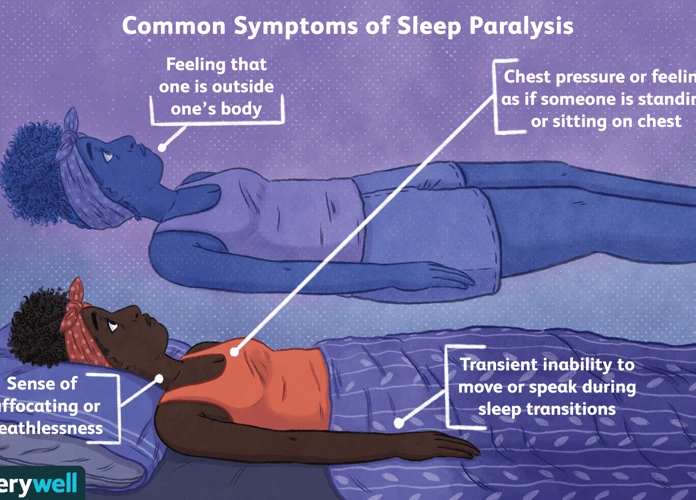Have you ever experienced the frustration of speaking in a dream, only to find that nobody can hear you? It can be an eerie and perplexing sensation, leaving you wondering what it means. Being unable to be heard in a dream is a common occurrence that can be attributed to various reasons. In this article, we will explore the possible explanations for why you may find yourself in this disconcerting situation, the psychological interpretations behind it, and most importantly, ways to overcome this feeling of being unheard in your dreams.
Reasons for Being Unheard in Dreams

There are several reasons why you may find yourself unable to be heard in your dreams. One possible explanation is that it could be a form of symbolic communication. Dreams often use symbols and metaphors to convey messages, so being unheard in a dream could represent a deeper meaning or message that your subconscious is trying to communicate. Another reason could be a fear of rejection or abandonment. Perhaps you have concerns about not being heard or understood by others in your waking life, and this fear manifests itself in your dreams. Additionally, a lack of control or empowerment could contribute to feeling unheard in dreams. If you feel powerless or unable to assert yourself in certain situations, it may be reflected in your dream experiences. Finally, communication breakdowns can occur in dreams just as they can in real life. Sometimes, the brain may not process sound properly during the dreaming state, resulting in an inability to hear or be heard. The reasons for being unheard in dreams can range from symbolic interpretations to personal fears and anxieties.
1. Symbolic Communication
Symbolic communication is one possible interpretation for being unheard in dreams. Dreams often utilize symbols and metaphors to convey messages that may not be easily expressed in verbal or auditory form. In this context, being unable to be heard could be a symbolic representation of feeling ignored, misunderstood, or disregarded in your waking life. It could be a way for your subconscious mind to highlight the importance of effective communication and the need to express yourself more clearly or assertively. This symbolic interpretation suggests that there may be underlying messages or emotions that your dream is trying to convey through the experience of being unheard.
In a dream where someone is unable to hear you, it is crucial to consider the specific context and details of the dream to understand the symbolic meaning fully. For example, if the dream involves a conversation with a figure associated with negative connotations, such as the devil, it may signify a deeper struggle with expressing your thoughts or beliefs in the face of opposition or temptation. Exploring the symbols in your dreams can provide valuable insights into your subconscious thoughts and emotions, helping you gain a better understanding of yourself and your experiences. (For more information on dream symbolism, check out our article on “What Does It Mean to Dream of the Devil?“).
2. Fear of Rejection or Abandonment
Feeling unheard in dreams can stem from a deep-seated fear of rejection or abandonment. This fear may be rooted in past experiences where you felt ignored or dismissed by others. In your dream state, this fear manifests as a sense of being unable to communicate effectively or express yourself. It’s important to recognize that dreams often tap into our subconscious fears and anxieties, allowing us to confront and process them. To overcome this fear, it can be helpful to explore the root cause of your fear of rejection or abandonment, whether through self-reflection or with the guidance of a therapist or counselor, who can provide valuable insights and tools for addressing these issues. Remember, understanding the source of your fear is the first step towards finding healing and empowerment.
3. Lack of Control or Empowerment
Feeling unheard in dreams can also be linked to a lack of control or empowerment. In these dreams, you may find yourself in situations where your voice is ignored or unheard, mirroring a sense of powerlessness or a struggle to assert yourself in waking life. This can be particularly frustrating if you typically value being in control or having a say in important matters. Your dream may be highlighting a need to regain control or find ways to empower yourself in your daily life. By addressing the underlying issues related to control and empowerment, you can work towards breaking free from the feeling of being unheard, both in your dreams and in your waking reality.
4. Communication Breakdown
Communication breakdowns can occur within dreams, leading to the sensation of being unheard. These breakdowns can stem from various factors, such as the brain’s processing of sound during the dream state. Just as miscommunication can happen in waking life, it can also manifest in dreams. When communication channels are disrupted or distorted, it can result in a feeling of being unable to hear or be heard. This breakdown in communication can be frustrating and may reflect underlying challenges in expressing oneself effectively. Understanding the dynamics of communication breakdown in dreams can help shed light on the deeper meaning behind the experience.
Psychological Interpretations of Being Unheard in Dreams

When it comes to the psychological interpretations of being unheard in dreams, there are a few possibilities to consider. Firstly, it could be associated with low self-esteem or self-worth. Feeling unheard in dreams may reflect an underlying belief that your thoughts, opinions, or voice are not valued in waking life. Another interpretation relates to suppressed emotions or unexpressed thoughts. If you often hold back your feelings or thoughts, it may manifest in your dreams as being unable to communicate effectively. Difficulty in asserting oneself in waking life can contribute to feeling unheard in dreams. If you struggle with assertiveness or find it challenging to speak up for yourself, this could be reflected in your dream experiences. Lastly, a desire for attention or validation may be a psychological interpretation for not being heard in dreams. It could signify a longing for recognition or acknowledgment from others. Understanding these psychological interpretations can offer insights into your subconscious mind and potential areas for personal growth and self-reflection.
1. Low Self-Esteem or Self-Worth
Low self-esteem or self-worth can play a significant role in feeling unheard in dreams. When you lack confidence in yourself and your abilities, it can translate into your dream experiences. In these dreams, you may struggle to communicate effectively or feel ignored by others. Your subconscious mind may be reflecting your insecurities and feelings of unworthiness, causing you to believe that your voice doesn’t matter or won’t be heard. It is important to address these underlying issues and work on building your self-esteem in order to overcome the recurring theme of feeling unheard in your dreams. (Link: /what-does-it-mean-to-see-someone-sweeping-in-a-dream/)
2. Suppressed Emotions or Unexpressed Thoughts
Suppressed emotions or unexpressed thoughts can play a significant role in feeling unheard in dreams. Dreams often serve as a channel for our subconscious to process and release emotions and thoughts that we may have suppressed or repressed in our waking life. When we don’t express our emotions openly or honestly, they can accumulate within us, seeking an outlet of release. Dreaming of being unheard may indicate that there are unresolved emotions or thoughts that need attention and expression. This suppression of emotions and thoughts can have various effects on our well-being, so it is crucial to address and explore these hidden aspects of ourselves. By acknowledging and expressing our emotions and thoughts, we can create space for self-growth and emotional healing.
3. Difficulty in Asserting Oneself in Waking Life
Difficulty in asserting oneself in waking life can be another psychological interpretation for feeling unheard in dreams. This could indicate struggles with self-confidence and assertiveness. If you find it challenging to speak up for yourself or express your needs and desires in your day-to-day interactions, it may manifest as being unable to have your voice heard in dreams. It is common for individuals who have difficulty asserting themselves to have dreams where their words go unnoticed or ignored. This can serve as a reminder to work on developing assertiveness skills and finding ways to express yourself effectively in waking life. Learning to assert yourself confidently can lead to improved communication and a greater sense of empowerment. For more information on dream symbolism, check out our article on what it means to see someone smoking in a dream.
4. Desire for Attention or Validation
Feeling unheard in dreams could also be linked to a desire for attention or validation. Perhaps in your waking life, you long to be heard and acknowledged by others, and this desire translates into your dream state. The inability to be heard in your dreams may reflect a need for recognition or reassurance. It’s possible that you have unmet emotional needs or a longing for validation that is manifesting in your dreams. This desire for attention or validation can contribute to the feeling of being unheard in your dreams and may be worth exploring further in your waking life.
Ways to Overcome Feeling Unheard in Dreams
There are various ways to overcome the feeling of being unheard in your dreams. Here are some strategies to consider:
1. Explore your feelings and fears: Start by investigating any underlying emotions or anxieties that may be contributing to your dream experience. Journaling, therapy, or self-reflection can help you uncover and process these feelings.
2. Practice self-expression and assertiveness: Work on improving your communication skills and assertiveness in your waking life. This can involve setting boundaries, expressing your thoughts and feelings openly, and practicing active listening.
3. Seek support or professional guidance: If you’re struggling with feeling unheard in your dreams or in your everyday life, consider reaching out to a therapist or counselor who can provide guidance and support.
4. Embrace self-acceptance and empowerment: Focus on building self-esteem and self-confidence. Engage in activities that make you feel empowered and validate your worth. Surround yourself with supportive and understanding individuals.
By implementing these strategies, you can work towards overcoming the feeling of being unheard in your dreams and enhance your overall sense of empowerment and self-expression. Remember, everyone’s dream experiences are unique, and finding what works best for you may require some exploration and self-discovery.
1. Explore Your Feelings and Fears
To overcome the feeling of being unheard in dreams, one approach is to explore your feelings and fears. Take the time to reflect on what emotions or concerns may be underlying this recurring theme in your dreams. Keeping a dream journal can be helpful in identifying any patterns or common themes that emerge. Consider the specific situations in your waking life where you often feel unheard or silenced. This introspection can provide valuable insights into the root causes of your dreams. By gaining a deeper understanding of your emotions and fears, you can begin to address and work through them, both in your dreams and in your waking life.
2. Practice Self-Expression and Assertiveness
One effective way to overcome the feeling of being unheard in your dreams is to practice self-expression and assertiveness. This involves finding healthy and confident ways to communicate your thoughts, feelings, and needs both in your dreams and in your waking life. Here are a few strategies that can help:
1. Journaling: Start by journaling your thoughts and emotions regularly. This practice can help you gain clarity and facilitate self-expression.
2. Creative outlets: Engage in creative activities such as painting, writing, or playing music. These activities can serve as powerful tools for self-expression and help you find your voice.
3. Role-playing: Practice assertiveness through role-playing scenarios. Imagine yourself in situations where you need to assert yourself and practice expressing your needs and boundaries.
4. Body language: Pay attention to your body language and practice open and confident postures. This can help you convey your message more effectively in both dreams and waking life.
By practicing self-expression and assertiveness, you can gradually overcome the feeling of being unheard in your dreams and gain confidence in expressing yourself authentically.
3. Seek Support or Professional Guidance
If you find yourself consistently feeling unheard in your dreams and it is causing distress or discomfort, seeking support or professional guidance can be beneficial. There are various resources available to help you navigate and understand your dream experiences. Consider reaching out to a therapist or counselor who specializes in dream analysis or psychology. They can provide insights into the underlying meanings and emotions behind your dreams and offer guidance on how to address any unresolved issues that may be contributing to your feelings of being unheard. Additionally, joining a dream interpretation group or participating in online forums can provide a supportive community where you can share your experiences, gain different perspectives, and learn from others who have similar dream patterns. Remember, seeking support or professional guidance can be a helpful step toward better understanding and addressing the emotions and themes that arise from being unheard in your dreams.
4. Embrace Self-Acceptance and Empowerment
Embracing self-acceptance and empowerment is a powerful step towards overcoming the feeling of being unheard in dreams. Start by acknowledging and accepting yourself for who you are, including your unique thoughts, feelings, and opinions. Understand that your voice matters and that you have the right to be heard. Practice self-empowerment by setting boundaries, asserting yourself, and expressing your needs and desires clearly. Surround yourself with supportive people who listen and validate your experiences. Additionally, engaging in activities that boost your self-confidence can contribute to a stronger sense of self-worth and the belief that your voice deserves to be heard. Remember, embracing self-acceptance and empowerment is a journey, but it can greatly improve your overall well-being and enable you to confidently express yourself, both in your dreams and in your waking life.
Conclusion
In conclusion, being unable to be heard in dreams can have various reasons and psychological interpretations. It is important to explore your own emotions, fears, and thoughts to understand the underlying issues that may be contributing to this dream experience. By practicing self-expression and assertiveness in your waking life, seeking support or professional guidance, and embracing self-acceptance and empowerment, you can overcome the feeling of being unheard in your dreams. Remember, dreams are a reflection of our subconscious mind, and by understanding them, we can gain valuable insights into ourselves and our emotions. So, delve into your dreams, listen to their messages, and empower yourself to be heard both in your dreams and in your waking life.
Frequently Asked Questions
1. Why do I sometimes dream that I can’t speak or be heard?
Dreaming that you can’t speak or be heard can be linked to a variety of reasons. It could be symbolic communication, representing a deeper message your subconscious wants to convey. It may also stem from a fear of rejection or abandonment, a lack of control or empowerment, or a mere communication breakdown within your dream state.
2. Is being unheard in dreams a common experience?
Yes, feeling unheard in dreams is a fairly common experience. Many people have had dreams where they try to communicate but find themselves unable to do so effectively or not heard by those around them.
3. Can being unheard in dreams reflect my self-esteem or self-worth?
Yes, feeling unheard in dreams can sometimes reflect low self-esteem or self-worth. It may indicate a lack of confidence in expressing your thoughts and feelings or a fear of not being valued by others.
4. Are suppressed emotions or unexpressed thoughts related to being unheard in dreams?
Yes, dreams of being unheard can be connected to suppressed emotions or unexpressed thoughts. Your subconscious mind may be trying to bring these unresolved feelings or thoughts to the surface through this dream experience.
5. Can feeling unheard in dreams be associated with difficulty asserting oneself in waking life?
Absolutely. Dreams of being unheard can symbolize difficulty in asserting yourself in waking life. It might indicate a struggle to speak up, set boundaries, or express yourself assertively in certain situations.
6. Is the desire for attention or validation connected to being unheard in dreams?
Yes, the desire for attention or validation can be linked to feeling unheard in dreams. It might suggest a longing to be seen, heard, or acknowledged by others in your waking life.
7. How can I overcome the feeling of being unheard in my dreams?
To overcome feeling unheard in dreams, it’s essential to explore your feelings and fears, practice self-expression and assertiveness, seek support or professional guidance if needed, and embrace self-acceptance and empowerment.
8. Is there anything I can do to enhance my dream communication?
Yes, you can try keeping a dream journal to better understand the messages in your dreams. Practicing active listening and effective communication in your waking life may also positively impact your dream communication.
9. Are lucid dreams helpful in overcoming feeling unheard in dreams?
Lucid dreaming, where you become aware that you are dreaming, can be a useful tool in overcoming feeling unheard in dreams. Being lucid allows you to take control and actively engage in your dream scenarios, potentially transforming the experience.
10. Should I be concerned if I frequently dream of being unheard?
If you frequently dream of being unheard and it affects your overall well-being or daily life, it might be beneficial to consult a healthcare professional or dream therapist. They can help provide insights and guidance tailored to your specific situation.






